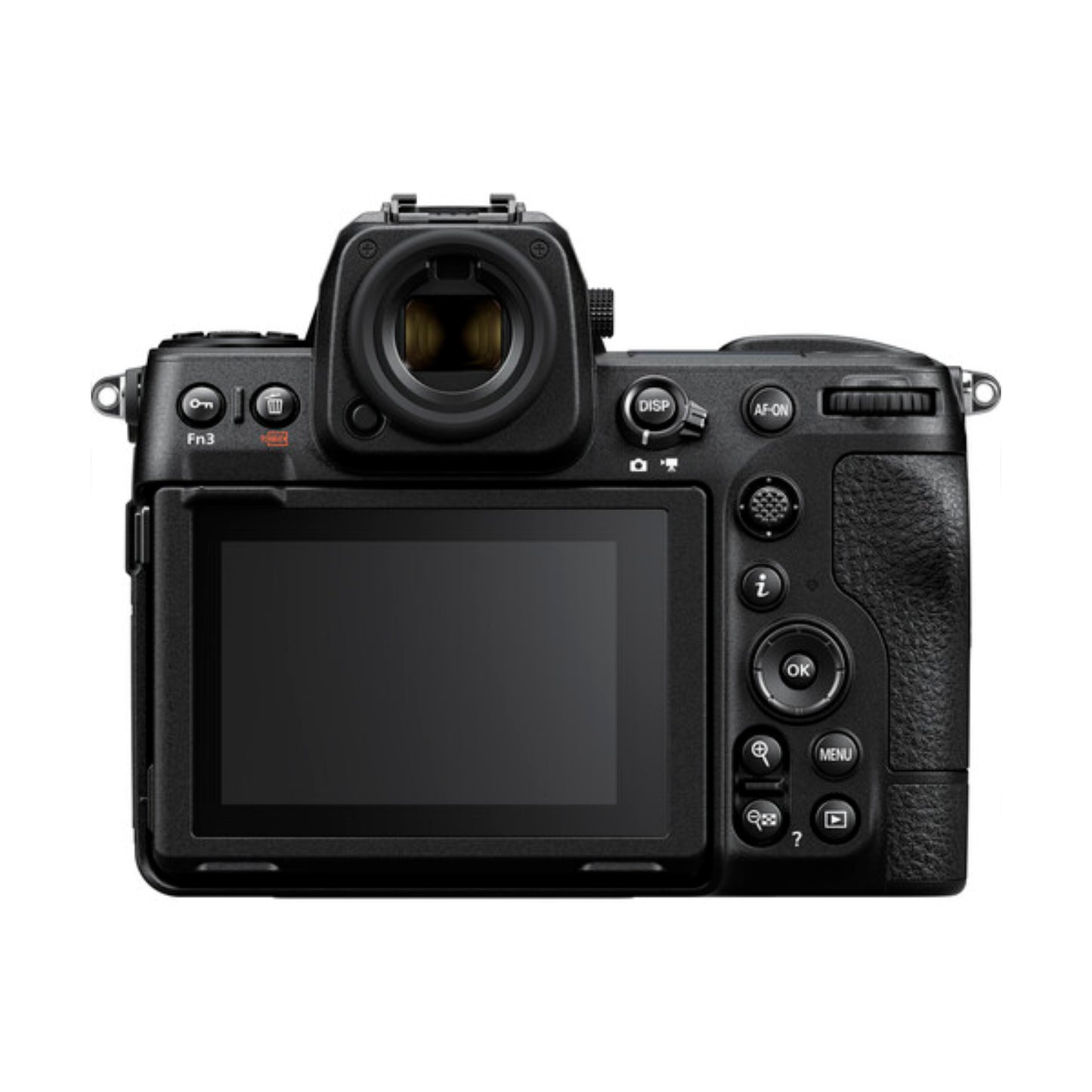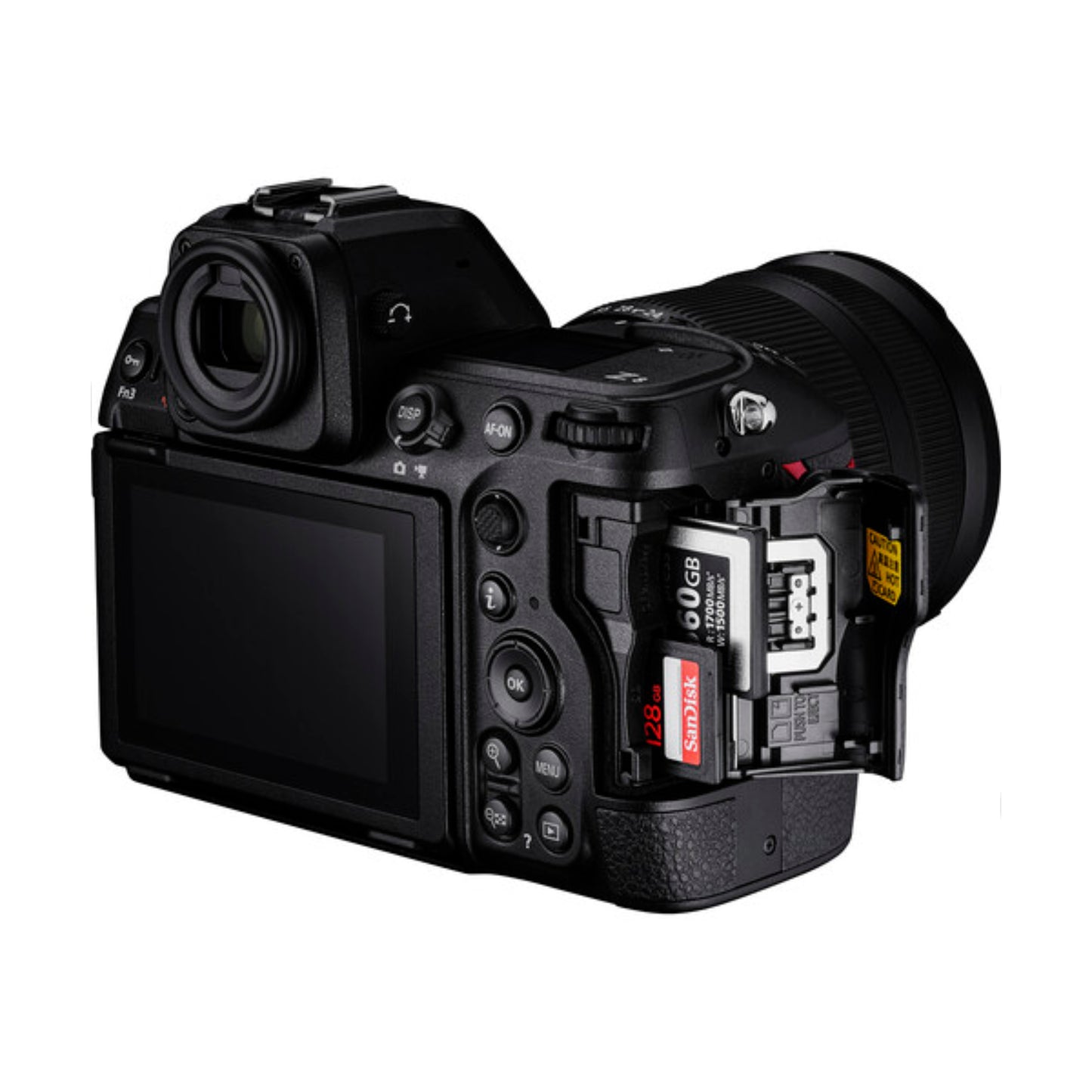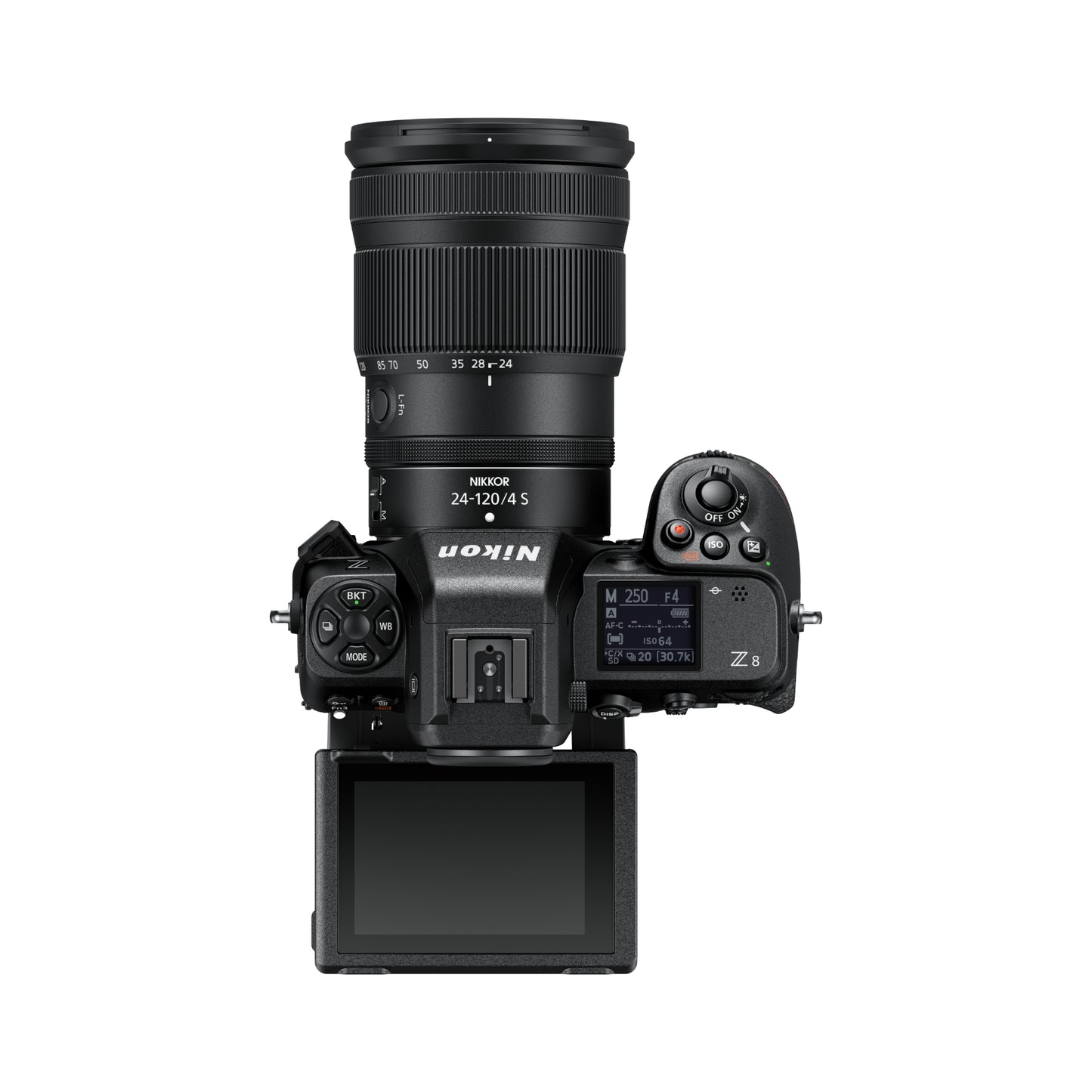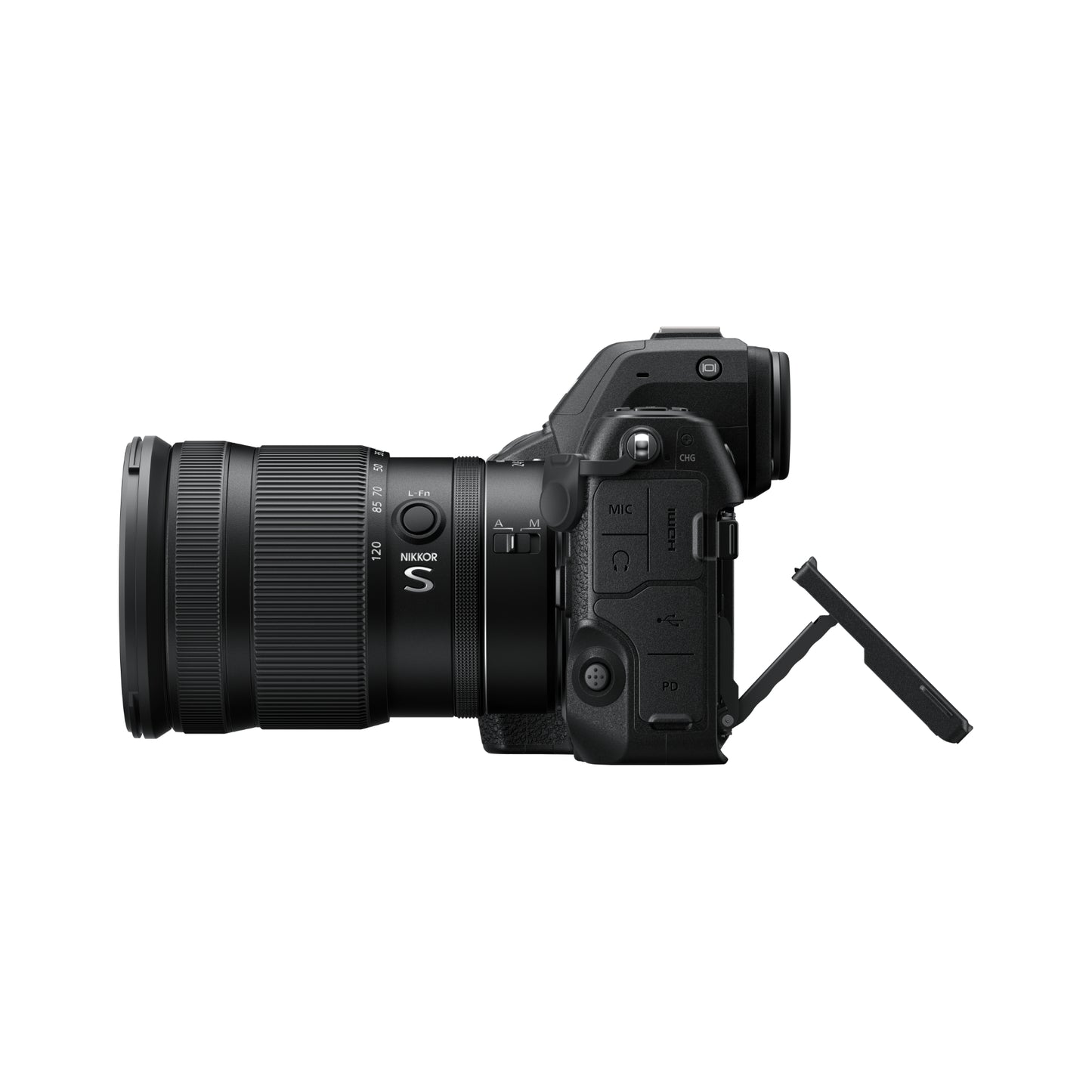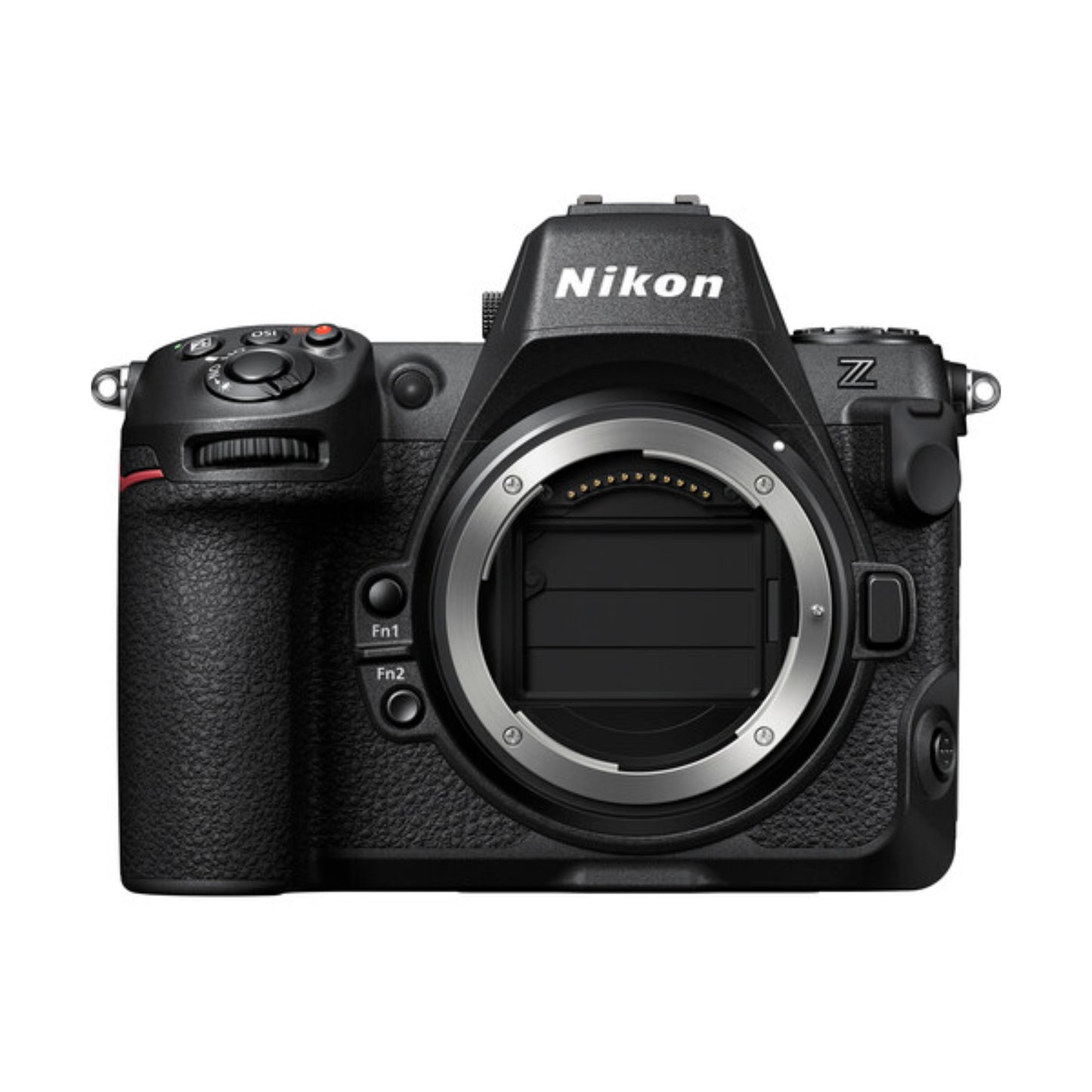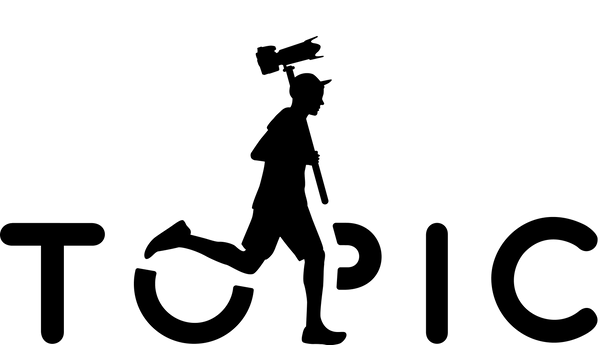Nikon Z8 Mirrorless Camera
Nikon Z8 Mirrorless Camera
Contact us
Couldn't load pickup availability
Features:
- 45.7MP FX-Format Stacked CMOS Sensor
- Lightweight Design, 30% Smaller than Z9
- 8.3K 60p N-RAW, 4.1K 60p ProRes RAW
- 8K30p and 4K120p Video, 10-Bit Internal
The Nikon Z8 was made for creatives searching for a camera loaded with pro-grade photo and video features in an easily adaptable, compact body. Boasting a 45MP full-frame stacked sensor paired with an EXPEED 7 processor, intelligent autofocusing capabilities, and 8K video recording, the Z8 is a camera that effortlessly switches from still to video without compromising quality. Sharing many of the key specs of Nikon’s mirrorless flagship Z9, the Z8 renders its vertical battery grip optional, making it a better match for gimbals, video rigs, self-shooting, or everyday carry.
Built using flagship DNA, the Nikon Z8 is a compact, lightweight camera housing much of the technology from the Z9 but in a sleeker, more portable package. Dubbed the ultimate hybrid camera, the Z8 features the same proven sensor, processing, and AF capabilities of the flagship with a new body design that better suits gimbal use, event shooting, and other handheld applications.
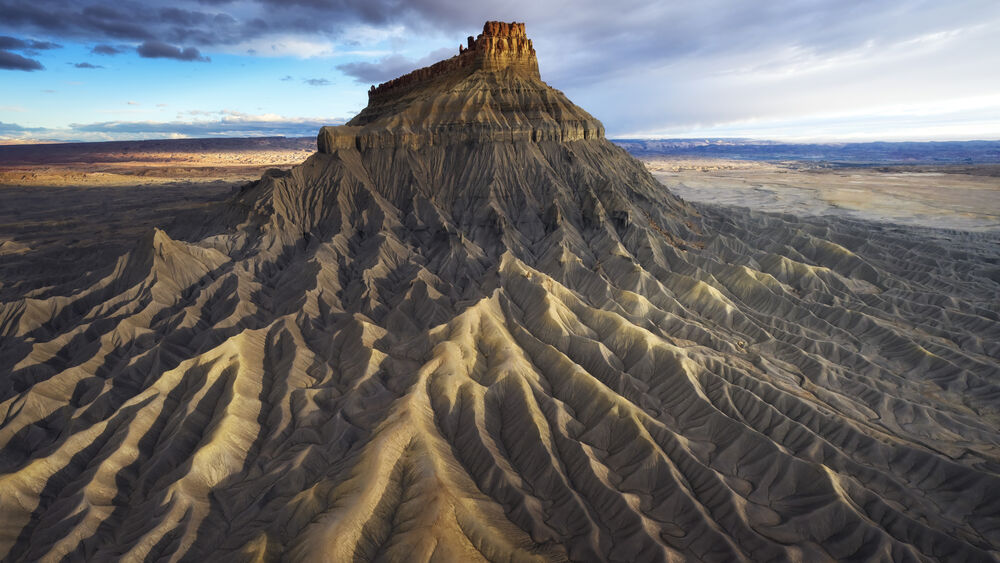
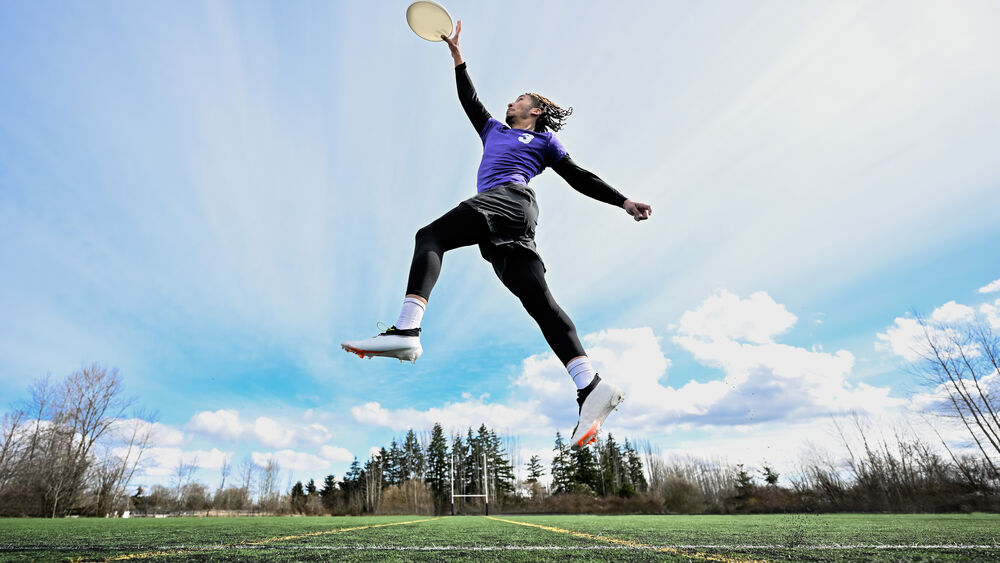
- Top continuous shooting speeds of 20 fps when shooting in raw, 30 fps when shooting in JPEG, 60 fps when shooting 19MP JPEGs using a DX area, and an impressive 120 fps shooting rate when recording 11MP stills, with all rates supporting full AF/AE performance.
- Able to buffer over 1000 raw images in a burst, meaning raw image sequences can be recorded for approximately 50 seconds continuously. Also, during playback, you can skip to the first shot of a given burst to expedite the on-camera review process.
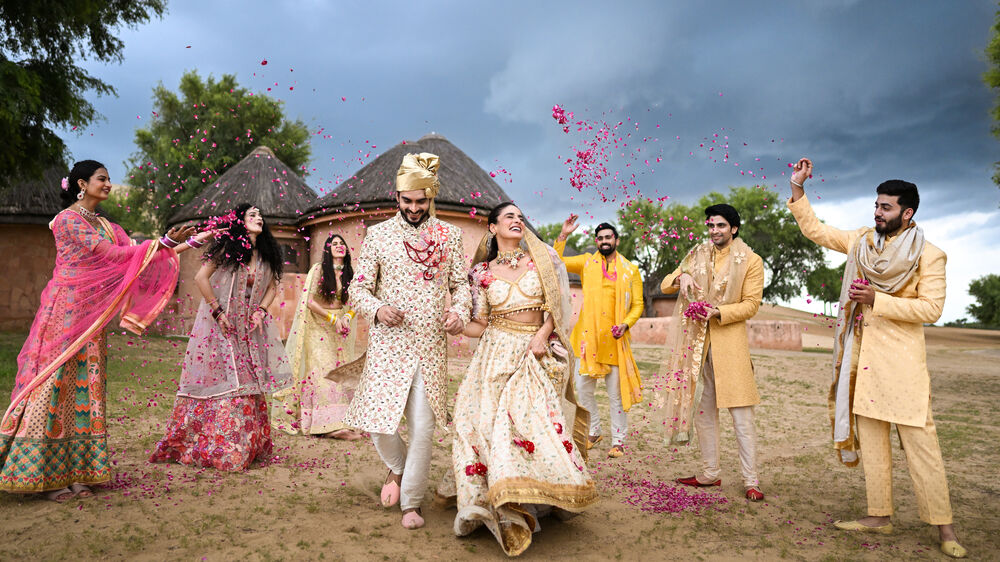
- Pre-Release Capture helps make decisive moment shots easier by recording frames in a burst for up a second prior to actually releasing the shutter. When this feature is activated, burst shooting will commence when the shutter is half-pressed and the buffer will retain up to a second's worth of frames prior to fully pressing the shutter.
- Electronic shutter affords a top shutter speed of 1/32,000 sec for working in the brightest conditions with wider apertures.
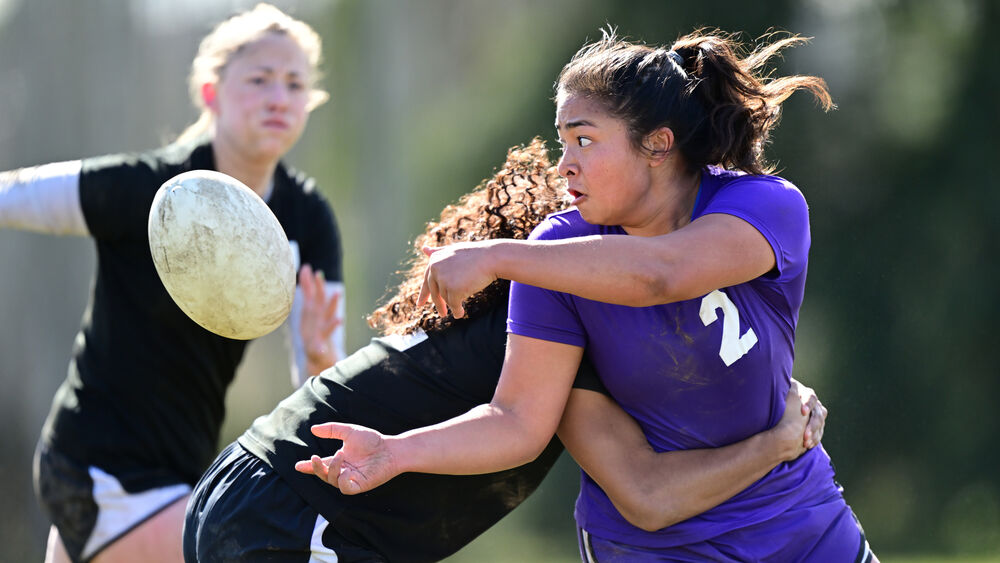
- Stacked sensor design reduces rolling shutter distortion so fast-moving subjects, like a golf club, tennis racket, or baseball bat, do not appear distorted when working with shutter speeds up to 1/32,000 sec.
- AF calculations are done at a 120 fps rate to keep up with fast continuous shooting speeds.
- High Efficiency RAW file format maintains image quality akin to uncompressed raw files but with file sizes approximately 30% smaller for faster reading/writing to the memory card.
- Stills can also be saved in the HEIF file format; a useful evolution from JPEG, this 10-bit format offers 1 billion more colours for greater realism and dynamic range when viewed on HLG-compatible displays while still retaining the small file size as a JPEG.
- Motion Blend Retouch feature can be used to produce an in-camera composite that depicts a series of subject movements within a single frame.
- Long Exposure display includes a live exposure timer on the rear LCD, along with the ability to dim the viewfinder to better preserve your night-adjusted vision.
-
Electronic Shutter-Only DesignRelying on the speed and stacked design of the sensor, the Z8 completely forgoes a mechanical shutter and uses just an electronic shutter for all capture modes. The speed of the sensor enables recording at up to 1/32,000 sec and the stacked structure reduces motion distortion for accurate depiction of fast-moving subjects, like golf clubs, baseball bats, and automobiles. Also, despite the absence of a mechanical shutter, flash sync up to 1/200 sec. is still supported as well as high speed sync functions.
By removing the mechanical shutter, the Z8 can also operate completely silently and there is no worry over mechanical shutter wear or breakdown. A shutter release sound can be added for awareness when a photo is being taken, and the volume can be adjusted to suit different working scenarios.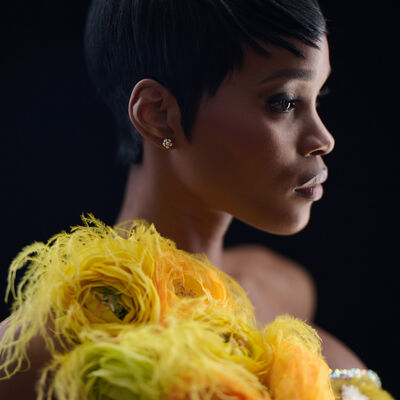 More Beautiful PortraitsPerfect for portraits, the Z8 improves on the sensor's inherent capabilities with a series of processing tools and shooting functions to improve portraits:
More Beautiful PortraitsPerfect for portraits, the Z8 improves on the sensor's inherent capabilities with a series of processing tools and shooting functions to improve portraits:
- Fine-tune hue and brightness while shooting for more precise control while shooting.
- Skin softening can be used on up to three subjects in a shot and slightly blurs the skin for a more pleasing texture while still retaining essential sharpness on eyes and hair.
- Manual white balance control is more intuitive when making adjustments and Auto WB has also been optimised for human subjects.
Fast and Intelligent AF493-Point Phase-Detection AFCovering the full sensor area, the Z8 uses the flagship 493-point phase-detection AF system to realise fast and accurate focusing performance. This system is benefitted by the high-speed communication of the Z interface along with the speed of the sensor that enables AF readings to occur at up to 120 fps.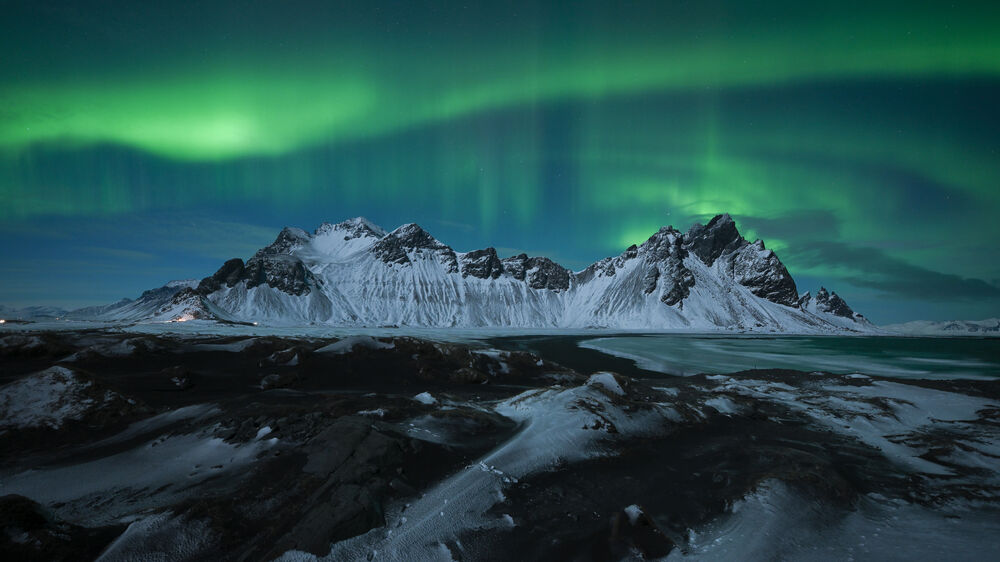 This focusing system also supports working in low-light conditions with a Starlight mode that permits focusing down to -9 EV to greatly benefit astrophotography, concert, and other nighttime shooting applications. Also useful for working in difficult lighting conditions, Backlit AF uses separate pixels on the sensor for AF, allowing these areas to intentionally overexpose for focusing accuracy purposes without impacting the actual exposure of the recorded image.
This focusing system also supports working in low-light conditions with a Starlight mode that permits focusing down to -9 EV to greatly benefit astrophotography, concert, and other nighttime shooting applications. Also useful for working in difficult lighting conditions, Backlit AF uses separate pixels on the sensor for AF, allowing these areas to intentionally overexpose for focusing accuracy purposes without impacting the actual exposure of the recorded image.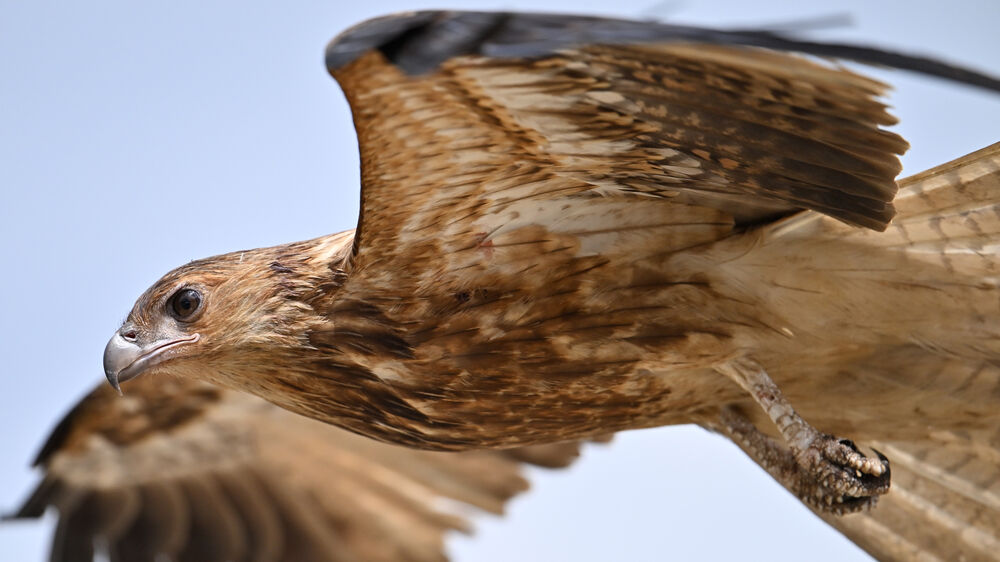 A mainstay focusing mode in DSLRs, which debuted for mirrorless with the Z9, the Z8 also includes 3D Tracking AF that pairs with subject detection to lock onto fast, erratically moving subjects that move parallel and perpendicular to the camera. Additionally, there are three Dynamic-Area AF modes, with a range of focus area sizes, for capturing a broad variety of moving subject types.
A mainstay focusing mode in DSLRs, which debuted for mirrorless with the Z9, the Z8 also includes 3D Tracking AF that pairs with subject detection to lock onto fast, erratically moving subjects that move parallel and perpendicular to the camera. Additionally, there are three Dynamic-Area AF modes, with a range of focus area sizes, for capturing a broad variety of moving subject types.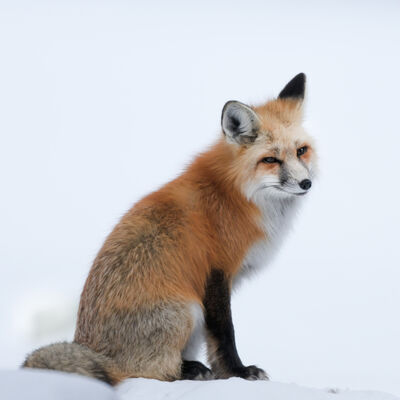 Subject Detection with Deep Learning TechnologyUtilising inherited algorithms and deep learning technology from the Z9, including sophisticated Subject Detection, the Z8 can recognise a variety of distinct subject types, ranging from humans to animals to airplanes to bicycles. When working in Auto-Area AF, these subjects will automatically be detected, focused on, and tracked to ensure sharp focus when the subject is moving across the frame.
Subject Detection with Deep Learning TechnologyUtilising inherited algorithms and deep learning technology from the Z9, including sophisticated Subject Detection, the Z8 can recognise a variety of distinct subject types, ranging from humans to animals to airplanes to bicycles. When working in Auto-Area AF, these subjects will automatically be detected, focused on, and tracked to ensure sharp focus when the subject is moving across the frame.
Eye-Detection AF, specifically, has been tuned for improved accuracy and refined recognition of eyes in the scene, regardless of how small or large they are within the image frame, and can also be used in conjunction with custom Wide-Area AF for different subject shapes and sizes.Video PowerhouseInternal 8K60 and 4K 120 RecordingEqually capable for video, the Z8 matches the Z9's recording capabilities here, as well, with a variety of resolutions and frame rates available up to 8K. Using full pixel readout, UHD 8K 30p video can be recorded with continuous shooting possible for approximately 2 hours 5 minutes.
Both 8K and 4K also support using the true 24p frame rate for a cinematic look and full-frame 4K recording is available, too, up to 120p for slow-motion playback. Using an 8K area, oversampled UHD 4K recording is possible at up to 60p for increased sharpness and detail. Also, high-resolution frame grabs can be recorded in camera from 8K and 4K videos, for producing 33MP or 11MP stills, respectively.12-Bit N-RAW and ProRes RAW VideoInternal 12-bit raw recording at up to 8.3K 60p in the N-RAW format is supported along with internal ProRES RAW HQ. Raw recording offers greater tonal and colour latitude and can improve dynamic range, benefitting colour grading needs and post-production flexibility.
- N-RAW is Nikon's own raw recording format that offers impressively small file sizes compared to other raw formats as well as the ability to create MP4 proxies for more efficient previewing or transferring.
- N-RAW recording is available at up to 8.3K at 60p or 24p; 4.1K at up to 120p; 5.3K at up to 60p with a 1.5x crop; and 3.8K at 120p with a 2.3x crop.
- ProRes RAW recording is also available at up to 4.1K and 60p.
ProRes and H.265 10-Bit RecordingInternal recording is also supported with 10-bit colour and 4:2:2 sampling in the ProRes 422 HQ and H.265 codecs, and H.264 and 4:2:0 colour can be used depending on workflow needs. For more latitude when colour grading in post, there is also a 10-bit N-Log setting as well as a Flat colour profile. Additionally, HLG (Hybrid Log Gamma) can be used for creating HDR-ready content straight from the camera.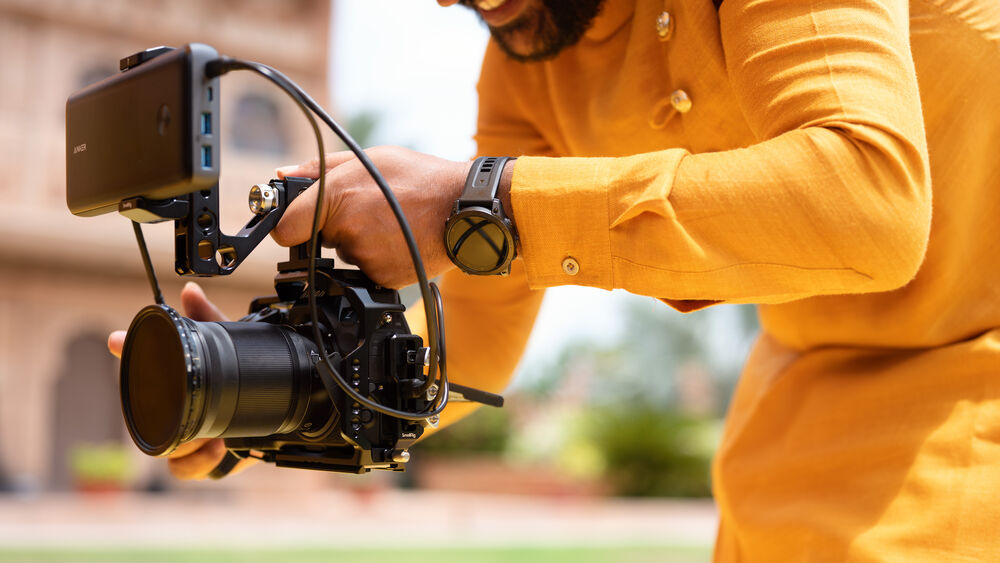 Recording SupportAiding the impressive recording specs, the Z8 also incorporates a variety of useful recording tools and functions for use in productions:
Recording SupportAiding the impressive recording specs, the Z8 also incorporates a variety of useful recording tools and functions for use in productions:
- Red REC frame indicator on EVF and LCD during recording to easily recognise when recording is being captured.
- Dedicated video info display indicates various recording settings, such as frame size, frame rate, audio settings, codec, bit depth, and HDMI output settings. Some of these settings will also be visible on the camera's top control panel.
- Focus peaking and zebra stripes are visual aids to help achieve sharp focus and accurate exposure.
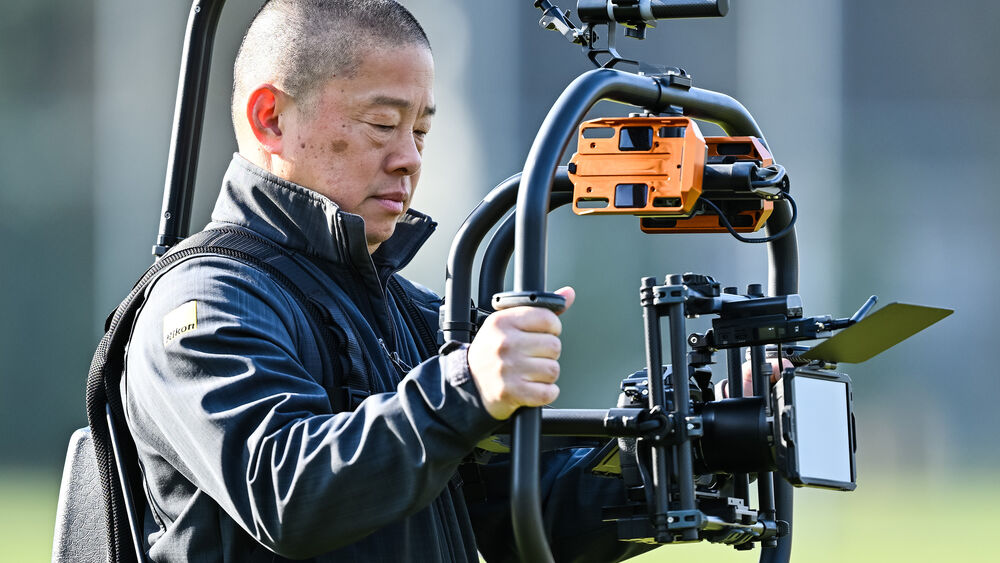
- Waveform monitor for realtime exposure analysis.
- Fine ISO control in Manual mode for adjusting exposure in 1/6-stop increments.
- Fast AF-ON function can be assigned to Fn buttons; it is now possible to assign two different AF speeds to different buttons.
- Slow shutter speed video is supported, slower than 1/frame rate, for working in extreme low-light conditions or for creating intentionally blurred effects.
- Timecode linking is possible when working with an optional timecode generator.
- Complementing the video capabilities, the Z8 also supports 24-bit linear PCM sound recording and offers compatibility with external XLR microphones via the optional Tascam CA-XLR2d-AN digital adapter.
A Smaller Professional Body Design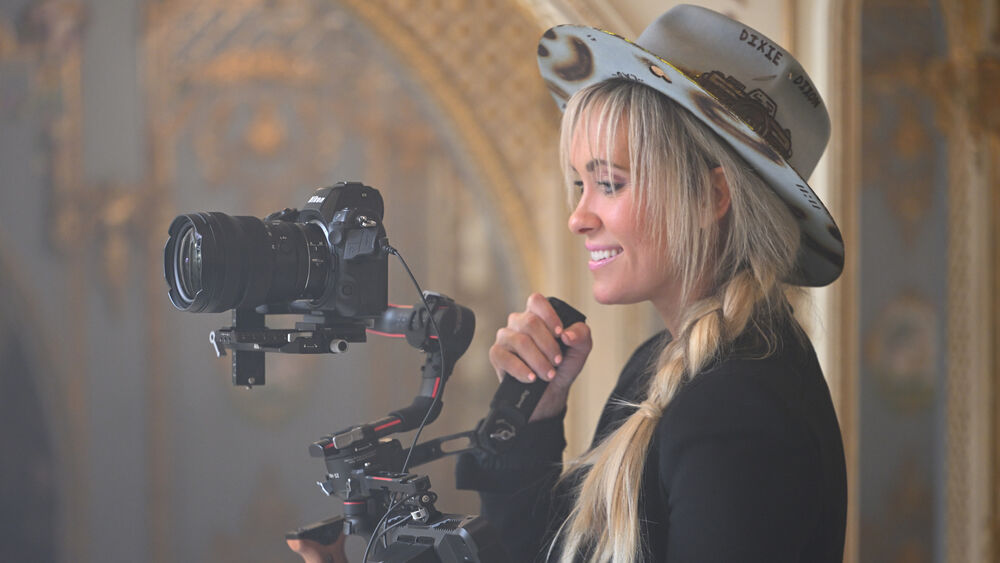 Sleek, Modular, and Durable Construction
Sleek, Modular, and Durable Construction- Deemed the true successor to the D850 DSLR and the smaller follow-up to the flagship Z9, the Z8 hits a sweet spot in terms of size and performance. It is 30% smaller than the Z9 and 15% smaller than the D850.
- Compared to the Z9, with its built-in vertical grip, the Z8 takes on a more modular design, allowing you to keep it small for day-to-day shooting or pair it with the optional MB-N12 Power Battery Pack grip for improved ergonomics when shooting vertical and better battery life. Also, the smaller, lighter design makes the Z8 an ideal candidate for rigging or use on a gimbal for video use.
- Dual card slots—one CFexpress Type B slot and one UHS-II SD slot—allow for flexible file saving. The CFx slot is suitable for data-intensive applications, like 8K recording and high-speed burst shooting, while the SD slot retains compatibility with the popular storage format. Additionally, the CFx B slot is also compatible with XQD memory cards.
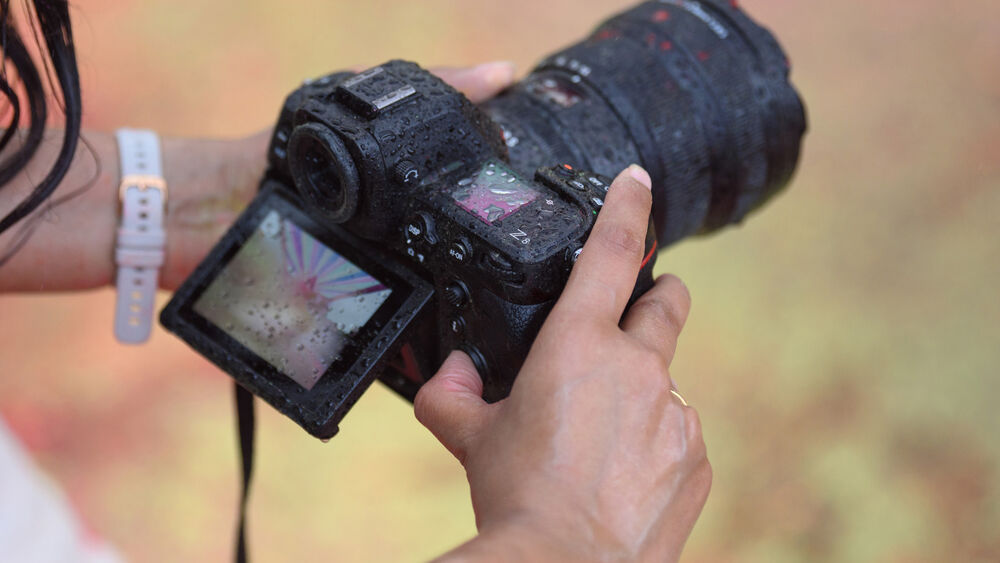
- Built using eco-friendly Seerebo carbon fibre and robust magnesium alloy, the Z8 manages to be both durable and lightweight, weighing just 2 lb.
- Premium weather sealing protects against dust and moisture for confident use in harsh climates.
- Included EN-EL15c battery offers approximately 340 frames per charge when primarily using the viewfinder or 370 shots per charge when primarily using the LCD monitor. The Z8 is also compatible with other EN-EL15-series batteries.
- In-body Vibration Reduction now supports Synchro VR to achieve up to 6 stops of camera shake compensation when used with select Z lenses.
- Helping to cut down on dust reaching the sensor, the Z8 incorporates a sensor shield that protects the sensor surface when changing lenses. For additional dust prevention, there is also a dual electro-conductive and fluorine coating on the optical filter covering the sensor.
- Backlit buttons offer easier navigation and button recognition when working in low-light conditions.
Real-Live Viewfinder- Real-Live Viewfinder is an advanced EVF utilising a 3.69m-dot OLED panel with adjustable luminance up to 3000 cd/m2 for clear visibility in bright conditions. This EVF also works in conjunction with dual-stream technology for blackout-free viewing when shooting continuously and it features a high fps function, which ups the EVF's refresh rate to 120 fps for smoother, lifelike viewing.
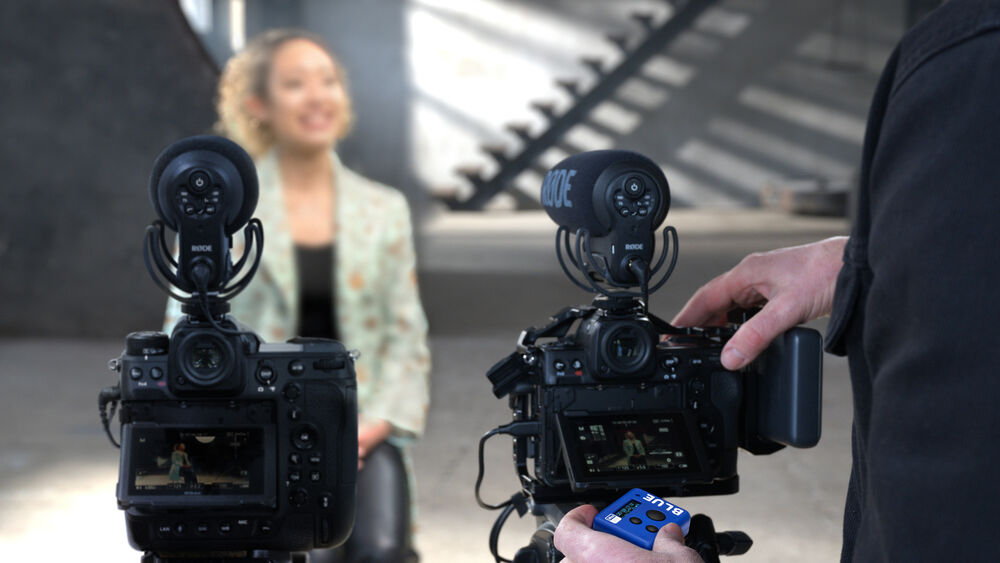 Four-Axis Tilting LCD
Four-Axis Tilting LCD- Like the Z9, the Z8 incorporates a unique 3.2" 2.1m-dot four-axis tilting touchscreen LCD that better supports working from high and low angles, regardless if shooting in the horizontal or vertical orientation. This screen's four-way tilting design allows for easier viewing from a variety of positions and the user interface orientation will also shift depending on how the camera is held.
Versatile ConnectivityMatching the professional build quality, the Z8 is fitted with a variety of connectivity options to suit various workflow needs: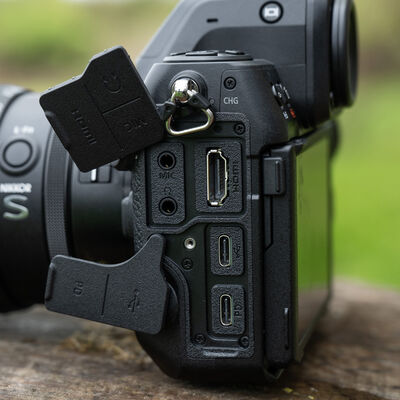
- Full-size HDMI port for outputting video to an external recorder or monitor
- 3.5mm headphone and microphone ports for attaching an external microphone and for on-board audio monitoring
- Two USB-C ports: one supports file transfers and tethering and the second is dedicated to power delivery and battery charging
- USB-C communication terminal supports USB-LAN connectivity when paired with an optional USB-C to Ethernet adapter. This enables a 1000BASE-T wired LAN connection for transferring files over FTP
- 10-pin port offers wide accessories and remote connectivity
- Bluetooth and Wi-Fi (2.4 and 5 GHz) permit wireless transferring of files, remote camera control via a mobile device, and works in conjunction with the NX Mobile Air app for file management
Share

